Advertisement
Despite criticism, special court sessions begin as Boston continues effort to clear tent encampment
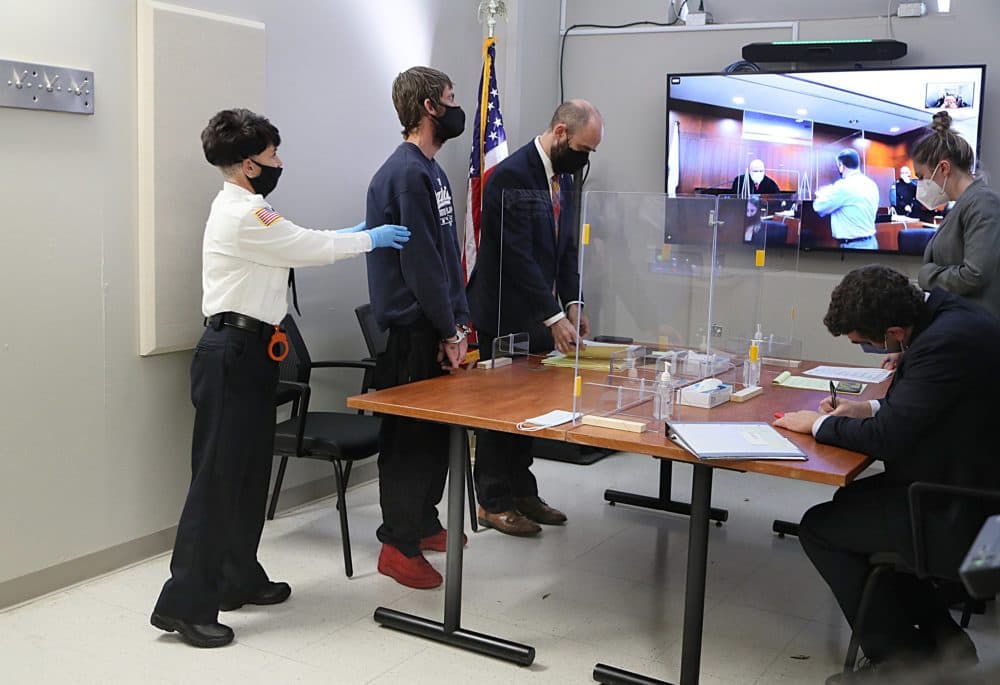
A new court session created to deal with a growing tent encampment in Boston began hearing cases inside the Suffolk County jail Monday. On its first day in operation, delays, technical issues and the search for addiction treatment slowed the proceedings. The rocky start drew criticism and promises that it would run smoother on Tuesday.
Just one of the three people brought to the new session was sent to treatment rather than to jail, which is supposed to be a priority for the new court and for city officials as they take steps to remove tents that have proliferated near the intersection of Massachusetts Avenue and Melnea Cass Boulevard.
Boston's Acting Mayor Kim Janey declared a public health crisis in the area, citing concerns about health, safety and substance use. She has promised to offer housing, treatment and other services to people who are affected by the city's effort to clear the area.
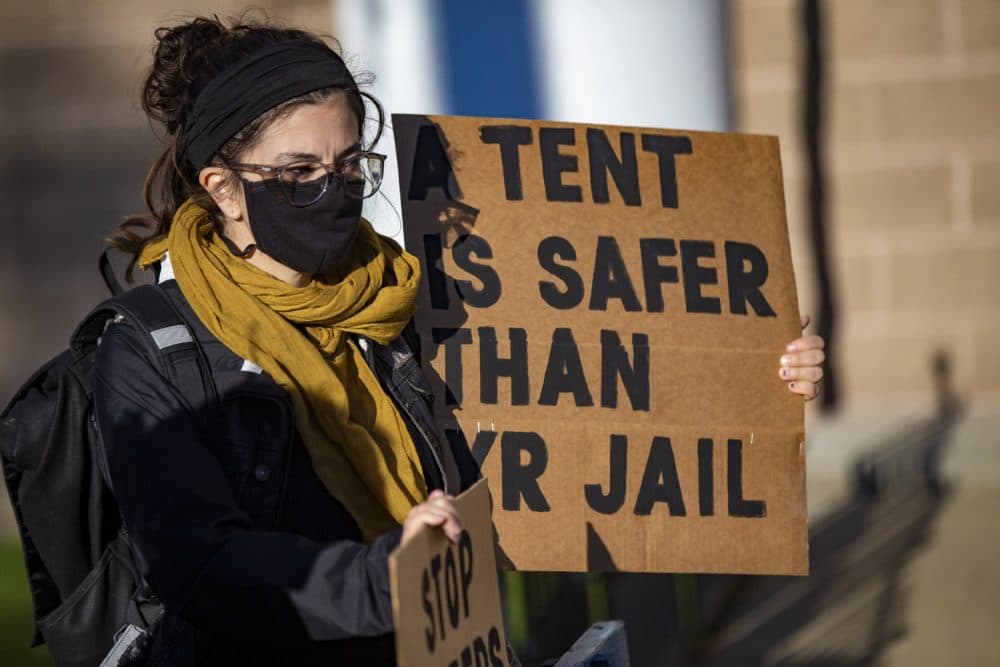
The three men who appeared Monday were brought in by Boston police officers on outstanding criminal warrants for charges including drug possession, operating under the influence and breaking and entering.
The men had been picked up earlier in the day near the tent encampment. They arrived handcuffed and waited most of the day for their appearances at the court, called the “community response session," which holds hearings in a small room inside the South Bay House of Correction.
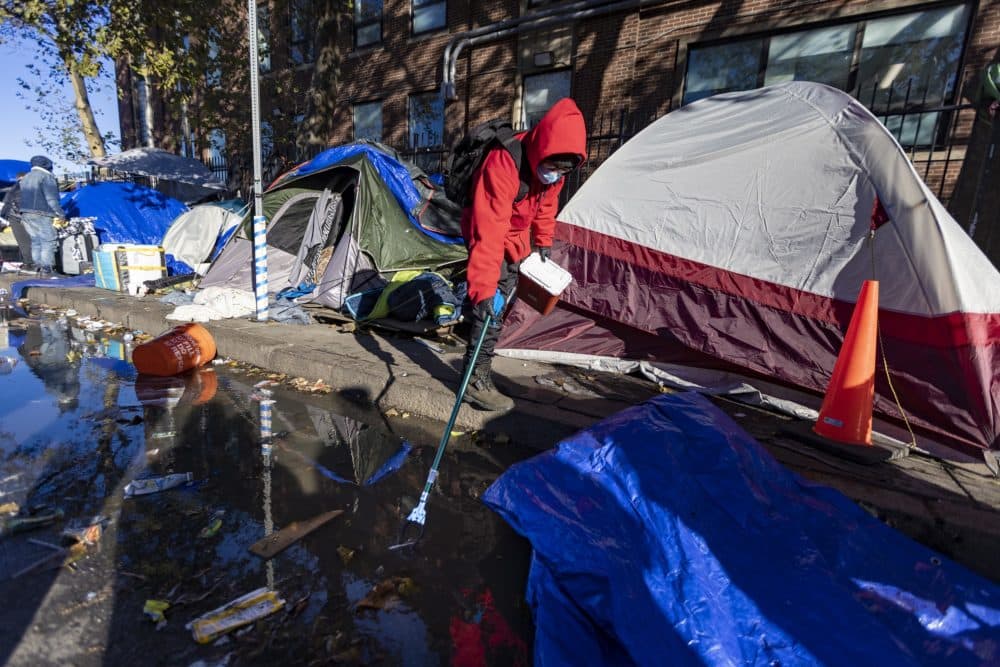
The state public defender agency, the Committee for Public Counsel Services (CPCS), which represented the men, said there was not proper medical supervision to accommodate those in withdrawal, even though the court was set up in the jail — near the encampment — to handle people who are medically compromised.
"Nothing happened here that couldn't have happened at any of the nearby courthouses. In fact, it is likely that these people would have had access to treatment faster," said CPCS General Counsel Anthony Benedetti. "This is supposed to be a stabilization court, but if things persist as they did today, this will be a facility of destabilization."
A spokesman for the Suffolk County Sheriff said most issues should be resolved for the court session Tuesday.
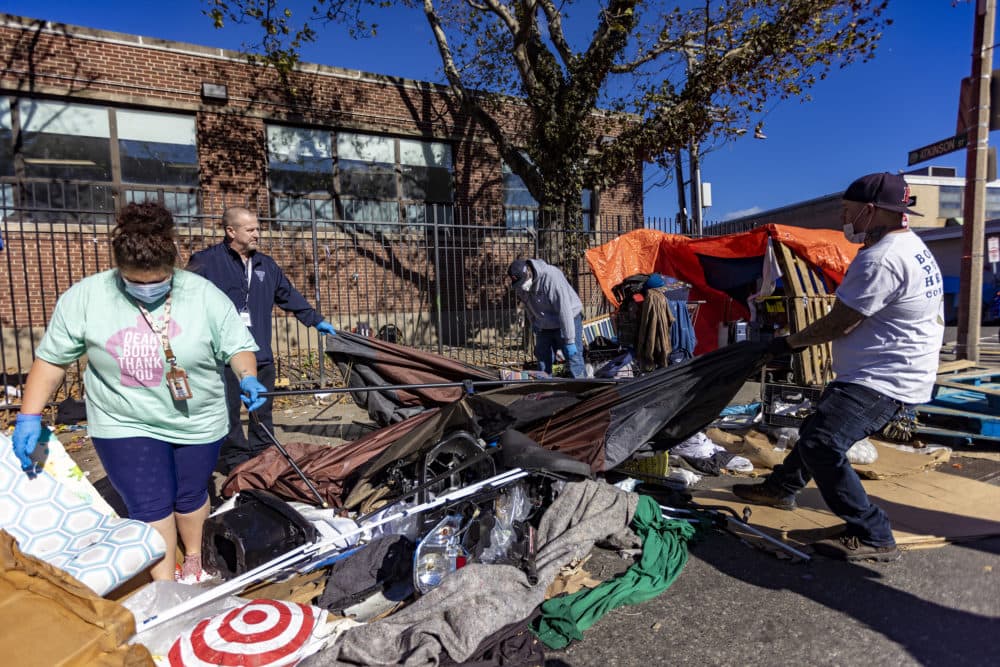
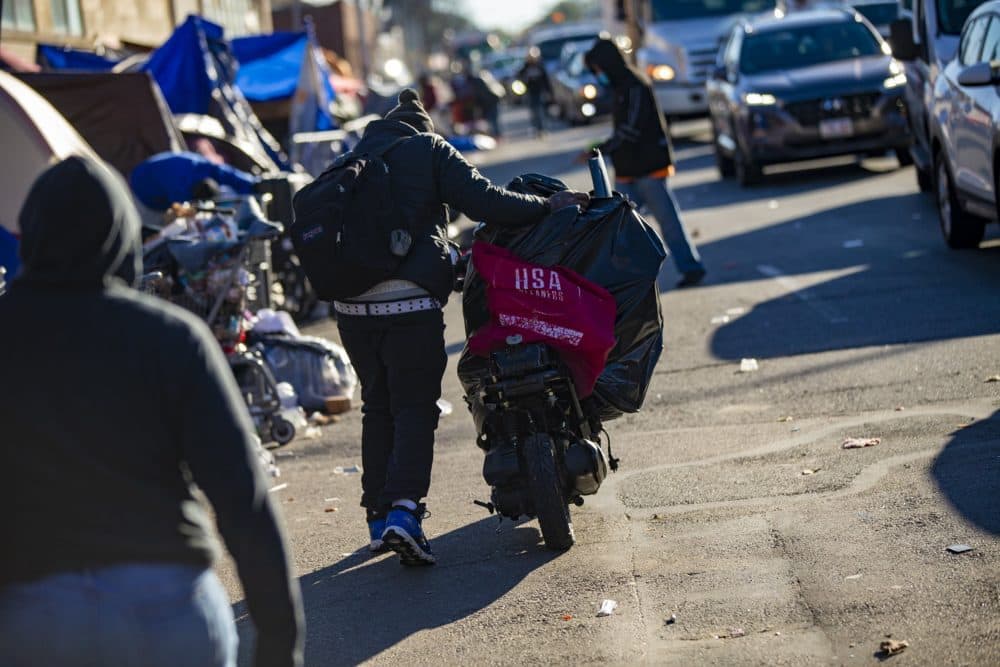
The men appeared separately and were seated at one side of a table with a public defender, Joshua Raisler Cohn. On the other side of the table, separated by plexiglass, were prosecutors Marc Tohme and Mariah O'Rourke. Boston Municipal Court Judge Paul Treseler oversaw the proceedings remotely from a large screen at the front of the room.
In the first case, Raisler Cohn asked that Philip Houston, of South Boston, be allowed to seek services at Boston Medical Center.
"We have a treatment plan in place for Mr. Houston to reconnect with treatment and get the services he needs," Raisler Cohn said. "It is our understanding that the purpose of this session is to clear warrants and get people into treatment. That's what my client was told this morning when he was arrested."
The prosecutor agreed.
"I'm asking that the court order Mr. Houston to abide by the treatment plan," Suffolk County Assistant District Attorney Mariah O'Rourke said.
Advertisement
But Treseler said the judge in Roxbury who issued the warrants — mostly for drug possession and distribution charges — had to review them.
"This is a court order. A judge signed off on an order to arrest. This order says take this person into custody and deliver him to me," Treseler said.
Houston was taken to Roxbury District Court, where he was held.
Another man, 33-year-old Maxwell Kolodka, was also held due to outstanding warrants in Newton and Fitchburg. After Kolodka’s attorneys and prosecutors agreed with a treatment plan, Judge Treseler said Kolodka had to go to Fitchburg to deal with a warrant for operating under the influence so he was held.
Both Houston and Kolodka were visibly distressed, with Kolodka appearing tearful. Raisler Cohn asked the judge to make sure that Kolodka is observed by medical personnel while incarcerated and Treseler agreed.
A third man, 37-year-old Patrick Kennefick, was sent to a detox facility in Quincy. He had an outstanding larceny warrant from South Boston.
Suffolk County District Attorney Rachael Rollins visited the court Monday morning and spoke with demonstrators outside. Some of the demonstrators carried signs saying, "A tent is safer than jail." They questioned four recent deaths of those in custody at the jail, which Rollins said her office is investigating.
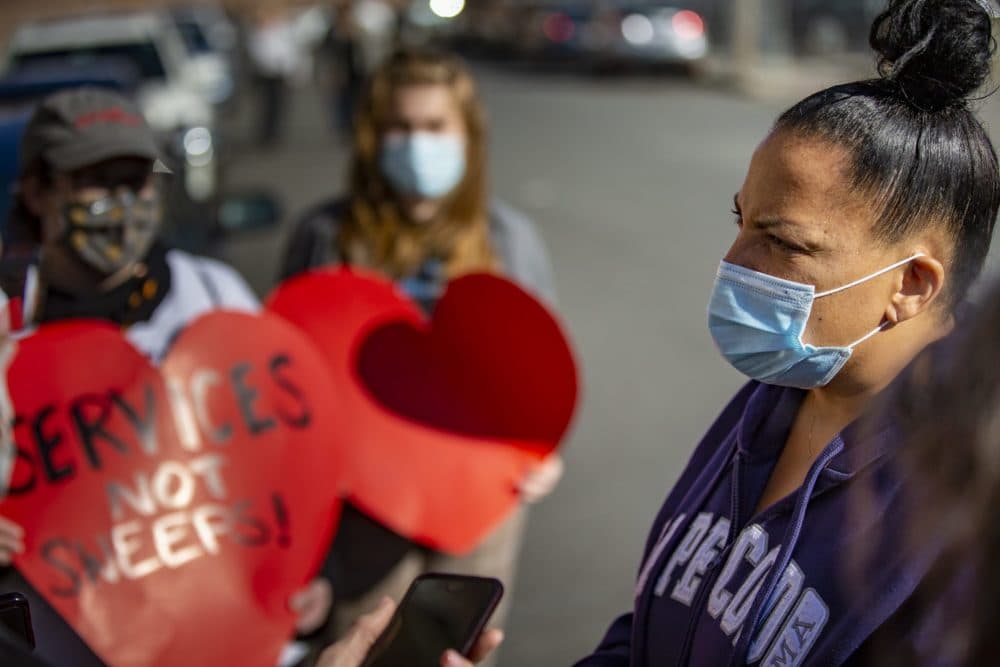
Rollins said she agrees that there are problems with a court inside a jail, but said the plan offered by Suffolk County Sheriff Steve Tompkins was the only viable option.
"I don't believe this is ideal, but this was the only thing that was put on the table, and we have reached a point where we have to do something," Rollins said.
Rollins added that the plan to use part of a building on the jail campus for a treatment center is not yet operating. Tompkins has said he hopes it will be open by the end of this month.
While the court proceedings were taking place, the city continued its effort to clear the nearby encampment. City workers removed more than a dozen tents from Southampton Street. It took several hours for the tents to be removed.
Acting Mayor Janey has said that notice will be given to those whose tents are going to be removed, and they will be offered storage for their belongings and alternatives for shelter and treatment services. Three people were placed in detox after Monday's removals. Most were offered shelter at the Pine Street Inn or the Southampton Street Shelter.
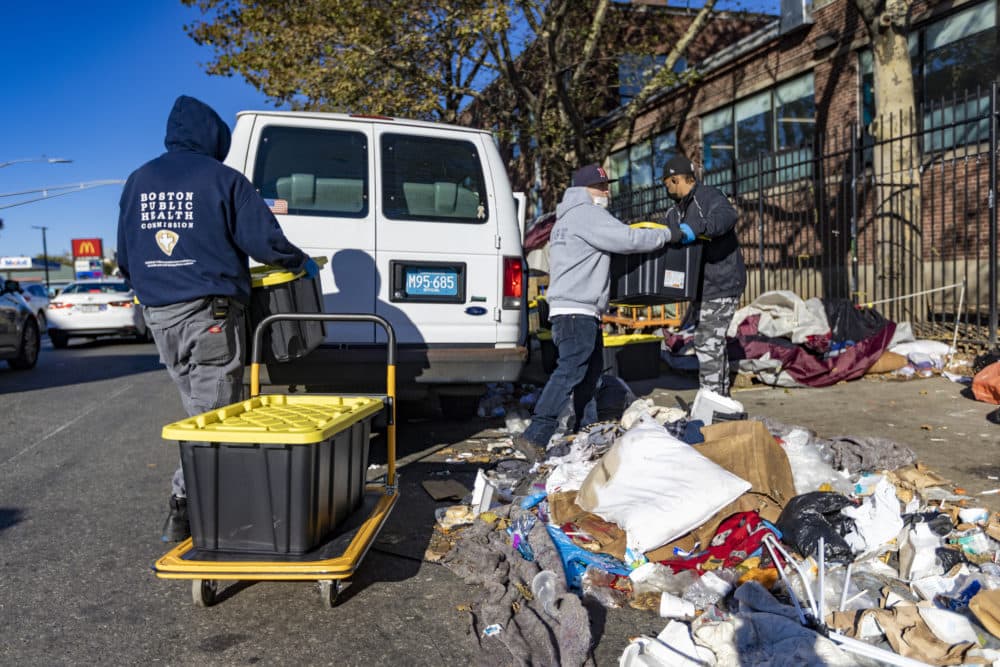
"The City commends the dedication, compassion and professionalism of the City of Boston employees who helped connect 17 people with pathways to transitional housing today. Of those, 9 have already toured new apartments," a city spokesperson said in a written statement. "No unsheltered individual will be required to remove their tent, before shelter, housing, or treatment is available for them.”
More notices taped on tents said there would be additional removals Wednesday morning on Southampton Street.
Some of those living in the encampment said they can't go to the shelters for various reasons, mainly due to their inability to comply with some shelter rules — such as abstaining from active drug use or being unable to stay with a partner. One man said he is looking for another area of Boston to pitch his tent.
This article was originally published on November 02, 2021.
This segment aired on November 2, 2021.
